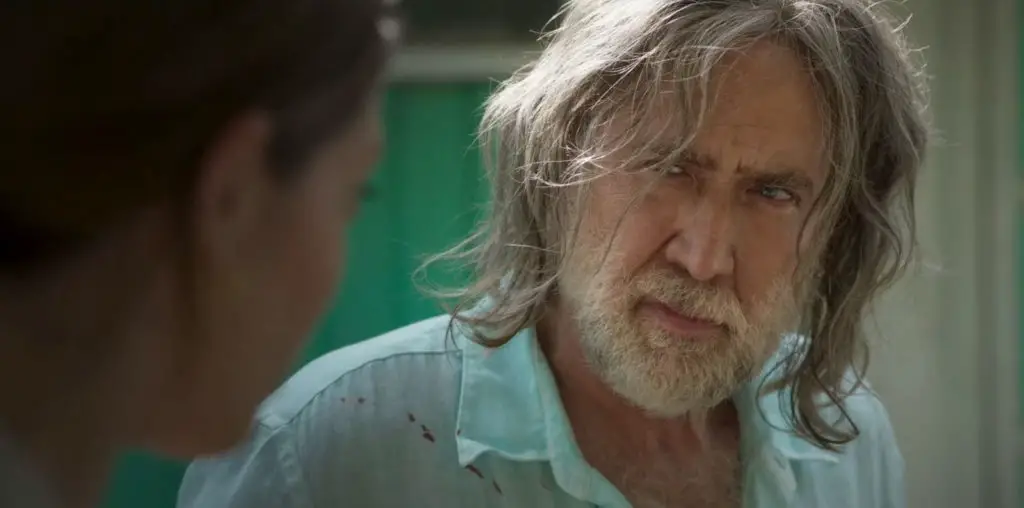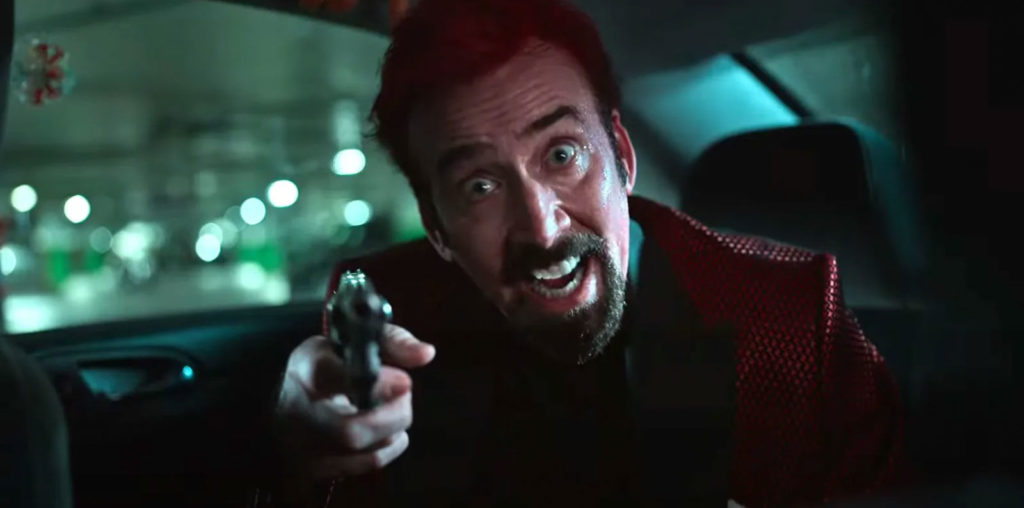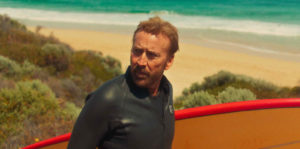
London International Film Festival 2024 Review! Nic Cage is back. Well, it’s been a few weeks. The Surfer is a very nice slice of Australia set psychosis, and from the get-go, the signs are good, with its delicious 1970s title card echoing the opening credits of Anna Biller’s similarly retro The Love Witch. But where Biller teased us with a riot of female sexuality, here, director Lorcan Finnegan serves a scorching return volley of bronzed and murderous men.
The protagonist is Cage’s affluent expat, returned to Australia after years in America. He has recently separated from his wife, but he seems optimistic they can work it out. To this end, he is finalizing the purchase of his grandfather’s old house on an idyllic Western Australian bay. As the film opens, he has sprung his teenage son from school for the day to catch some waves below the house and to inform him of the impending purchase.
“Don’t live here, Don’t surf here!” is all Pitbull (Alexander Bertrand) will say, barring their passage as they attempt to walk on to the beach. Cage’s surfer weathers it well, not announcing his near residency and gamely suffering the humiliation. It’s an extraordinarily interesting scene which powers the rest of the film like uranium pellets. This conflict is defused by the leader of the local surfers, Scally (Julian McMahon), a darkly tanned devil in a crimson poncho. He is Lord Summer Isle by way of Andrew Tate, a thoroughly alive characterisation from McMahon, whose depiction is so total I did not know who he was until the end credits rolled. The confrontation is filmed with terrific sparkle and menace by Finnegan.
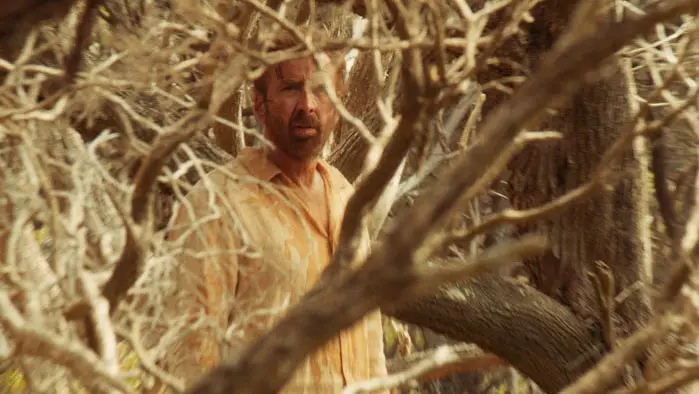
“…sprung his teenage son from school for the day to catch some waves…”
The Surfer is Finnegan’s fourth feature. His last was Nocera, whose Ballsbridge Gothic story didn’t quite satisfy, even if lead Eva Green certainly did. Cage is terrific, too, looking his age and looking great. When the turmoil really starts, a close-up of his frantic eyes makes the roaring surf of the beach look placid. He is one of the greats, and is used extremely well here.
Initially, the script by Thomas Martin has the outline of a thriller, with The Surfer (no one here has a proper name) pecking away at the edges of some potential revenge. Then we have the texture of a ghost story, where the plot muddies the very existence of our protagonist. This is all fascinating, although as the genres switch there is the sense it is loosening it’s focus. But the study of obsession is matchless. It is soon hinted that The Surfer’s enthusiasm for the house might be a nervous breakdown and a bid to ignore some hard truths.
The film bottles beautifully the neo-noir lightning that flashes down under from time to time, with it’s thrilling presentation of a remote beach town that has gone seriously wrong. The rest of it is often mystifying, sometimes maybe just indecisive, but it soon makes you question what you see with some pretty witty plotting.
The Surfer wanders, though, and the ending barely exists, resembling little more than a quick tidy once the plot strand about access to the beach ends. Still, this has cult classic written all over it, and it gives us yet another stunning turn from Cage. Finnegan is a director to watch.
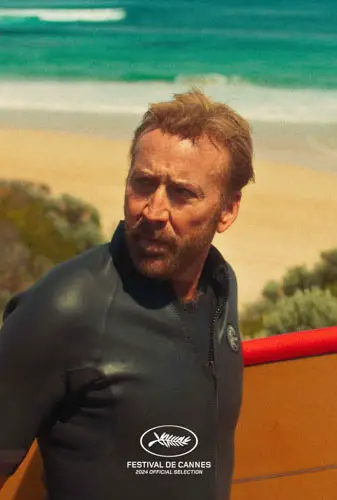
"…has cult classic written all over it..."

